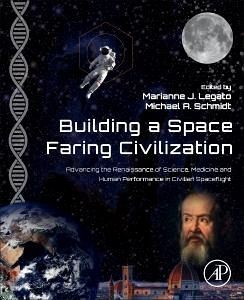Nicht lieferbar

Building a Space-Faring Civilization
Advancing the Renaissance of Science, Medicine and Human Performance in Civilian Spaceflight
Herausgeber: Legato J, Marianne; Schmidt A, Michael
Versandkostenfrei!
Nicht lieferbar
Building a Space-Faring Civilization: Advancing the Renaissance of Science, Medicine, and Human Performance in Civilian Spaceflight explores an expanding, unique new trajectory for humankind-the settlement of space by civilians. For the first time in history, average humans can contemplate journeys to Earth orbit, the Moon, and Mars with the idea of space settlement as a plausible reality. As the numbers of spacefaring civilians grow, medical personnel will be asked to meet their complex needs through an ever-expanding discipline-space medicine. But this will require a rapidly advancing scienc...
Building a Space-Faring Civilization: Advancing the Renaissance of Science, Medicine, and Human Performance in Civilian Spaceflight explores an expanding, unique new trajectory for humankind-the settlement of space by civilians. For the first time in history, average humans can contemplate journeys to Earth orbit, the Moon, and Mars with the idea of space settlement as a plausible reality. As the numbers of spacefaring civilians grow, medical personnel will be asked to meet their complex needs through an ever-expanding discipline-space medicine. But this will require a rapidly advancing science to address what some are calling the next great age in space. This book gathers some of the most accomplished thought leaders in the field of human spaceflight today. Collectively, they helped build the international space station (ISS), develop the field of orbital medicine, guide the development of commercial orbital platforms, plan missions to the Moon and Mars, and forge the innovation necessary for the commercial spaceflight industry to thrive today. The result is an exceptional source of wisdom, experience, and insight surrounding the current biomedical, technical, industrial, legal, and social implications of what is emerging as a true renaissance period in human history.












